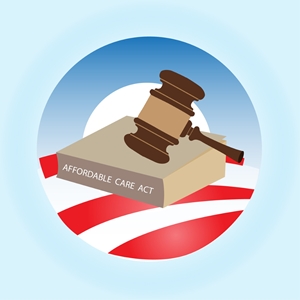
Employee benefits is one of the many advantages that comes from being gainfully employed. Nearly 70 percent of people who have health insurance are covered through their workplace, according to recent estimates from the U.S. Census Bureau. But ever since the Affordable Care Act was passed and signed into law, the legislation that requires all Americans to obtain health coverage, consumers are assuming a larger portion of health care expenses, based on a recent study conducted by U.S. News and World Report.
In the last decade, the average cost of deductibles have more than doubled, according to newly released estimates from U.S. News and World Report. Additionally, the percentage of premiums paid for by employees has risen by 4 percent among both single and family health plans, meaning that a greater portion of wage earners' take home pay is being diverted to insurance expenses.
At the same time, prescription drug costs have risen as well, up 55 percent over the same 10-year stretch of time.
Nearly 1 in 4 covered through exchanges
While employee benefits continue to be the predominant way in which Americans are covered, an ever-increasing percentage of health plans are now government provided. In other words, more people are using the state- and federal-based insurance exchanges created by the ACA. The total percentage of people under 65 on a public-sponsored health insurance policy rose from less than 13 percent in 2000 to nearly 24 percent in 2013, the equivalent of 1 in 4, according to the U.S. News study. Meanwhile, private health coverage has fallen from 72 percent to 61 percent over the same 13-year period.
Tim Smart, executive editor at the Washington, D.C.-based weekly news magazine, pointed out how these numbers speak volumes as to the overall impact of the ACA in a relatively short period of time.
"There is an ongoing narrative about health care's central role in the U.S. economy," Smart said. "[And] this index demonstrates all of the ways health care is touching every aspect of our society. "The Health Care Index … allows us to better understand how the health care system is evolving and its broader influence over time."
Economists say that approximately one-sixth of the U.S. economy is taken up by health care. In 2012, approximately 18 percent of the U.S.' gross domestic product was spent on health care, more than any other industrialized nation in the world, according to the U.S. News report. Additionally, the health care industry comprises a larger share of the U.S.' employment market. Fifteen years ago, there were 9.7 million health-care-related jobs. That number has now reached approximately 12.5 million.
Yet despite the uptick in health care supply, costs continue to rise, doctors confirmed in a recently performed survey.
Doctors say health care more expensive post ACA
More than 6 in 10 physicians – 61 percent – say that their overhead costs have risen since the introduction of the ACA due to the compliance measures that they have to abide by, based on a new poll performed by Jackson Healthcare. A roughly equivalent percentage of doctors say that this has led to more of their time being taken up by administrative tasks, adversely affecting their relationship with patients because they can't spend as much time with them.
Richard Jackson, chairman and CEO of the Atlanta-based Jackson Healthcare, said that even though the ACA might have "affordable" in its title, it hasn't lived up to its namesake.
"The ACA had good intentions, but failed to solve the major problem with health care – reducing costs," Jackson explained. "If we don't do something about costs – no matter how the Supreme Court rules – then we are just rearranging deck chairs on the Titanic."
The U.S. Supreme Court recently rendered its decision in the matter of King v. Burwell. The high court took up the case over a question regarding subsidies, the point at issue being whether individuals who are covered through the federal exchange are eligible for benefits or if they're only meant for people with insurance through the state-based marketplaces. In a 5-to-4 decision, the Court ruled in favor of the government, meaning that those people who receive subsidies through the federal exchange can keep their financial assistance intact. Had the Court overruled the government, subsidies may have been rescinded.
In his decision on behalf of the majority, Chief Justice John Roberts said that the ACA was passed in order to improve health insurance markets, "not to destroy them," the assumption being that if subsidies were taken away, perhaps millions of people would go uncovered.
"If at all possible, we must interpret the Act in a way that is consistent with the former, and avoids the latter," Roberts wrote on behalf of the majority.





